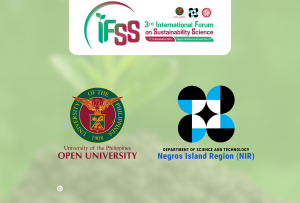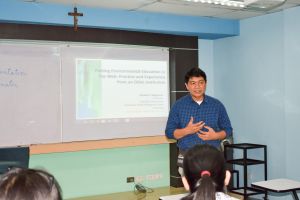
The UPOU Faculty and Staff attended the Seminar via Zoom and physically at the UPOU AVR in Los Baños.
The University of the Philippines Open University (UPOU) through the Faculty of Management and Development Studies (FMDS), in partnership with the Sekiguchi Global Research Association (SGRA) of the Atsumi International Foundation, hosted the 46B Sustainable Shared Growth Seminar titled “What the World Needs Now is LLABS (Local-to-Local Across Border Scheme)” on 31 July 2025 via videoconference and onsite at the UPOU HQ in Los Banis, Laguna.
The seminar, as part of their collaboration, aims to highlight how immersive and reflective methods, such as mindful walking, can support cross-border community collaboration and regional integration.
In her opening remarks, Director Junko Imanishi, SRGA Chief Representative and Managing Director of Atsumi International Foundation, highlighted the timeliness and relevance of the webinar. She described the initiative as rooted in harmony and diversity and expressed her hope that this will contribute to the sustainable shared growth across communities in the region.
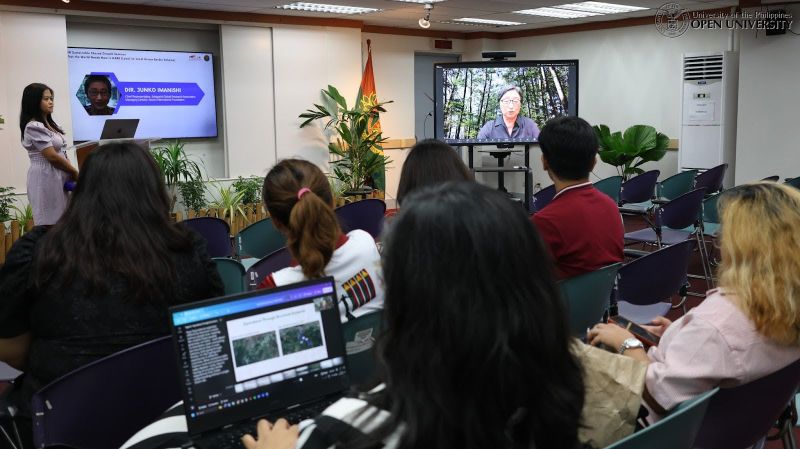
Director Junko Imanishi, SRGA Chief Representative and Managing Director of Atsumi International Foundatio, gave her opening remarks via Zoom.
The seminar featured three papers that laid out the concept and foundation, model, and the application of LLABS.

From left, three paper presenters: Mr. Ferdinand Maquito, Ms. Noreen Dianne Alazada, and Ms. Janelle Ebron
Dr. Ferdinand Maquito, senior lecturer at FMDS, discussed the roadmap to LLABS and how the entire concept came about from its conceptualization and the interconnection of ideas that began with sustainable shared growth and eventually gave birth to many aspects.
Ms. Noreen Dianne Alazada, FMDS Junior Project Assistant, introduced the theoretical model supporting LLABS. Her presentation stressed the importance of people-based and place-based knowledge. The model served as a foundation built from real-life experiences, data, and community reflections.
Ms. Janelle Ebron presented a case study on the “Greenway” concept through a comparative exploration of two communities: Fujino in Japan and Maahas, Los Baños in the Philippines. She focused on embodied experiences through tourism and mindful walking. Her methodology emphasized the importance of engaging both physically and socially with the environment.
UPOU Chancellor Dr. Joane V. Serrano provided valuable insights during the seminar, emphasizing how various forms of organizational engagement shaped the development of LLABS. She highlighted the value of walking as both a physical and social activity and as a method of data collection, community immersion, and knowledge co-creation. For Dr. Serrano, this is the idea of embodiment, allowing participants to not just observe, but deeply engage with place and people.
She also underscored the importance of recognizing the distinctiveness of communities like Fujino and Maahas. She urged for more analytical and critical comparisons between localities, emphasizing that LLABS thrives when it remains sensitive to local nuance.
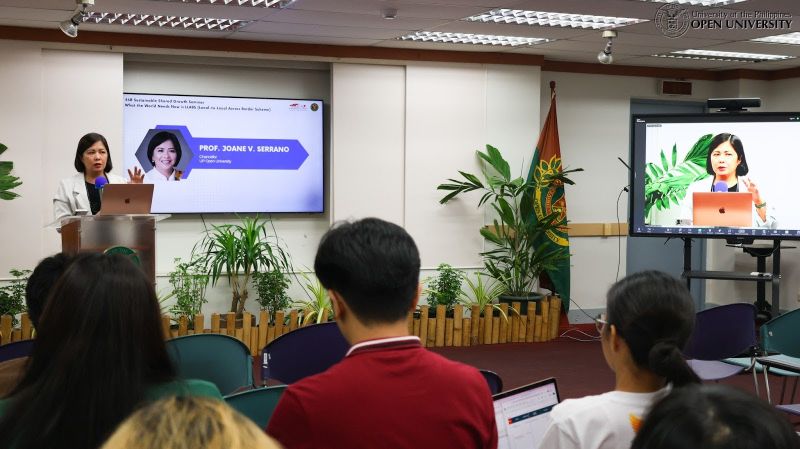
UPOU Chancellor, Dr. Joane V. Serrano, gave her insights on the presentations on the project.
During the open forum, participants raised thought-provoking questions, such as how greenways can become economically viable and how communities can be encouraged to develop their own sustainable pathways.
In her closing remarks, FMDS Dean Dr. Finaflor Taylan expressed gratitude to the organizers, presenters, and participants. According to Dean Taylan, LLABS is a viable model on how communities can form meaningful alliances within the Sustainable Development Goals (SDGs) and sustainable shared growth.
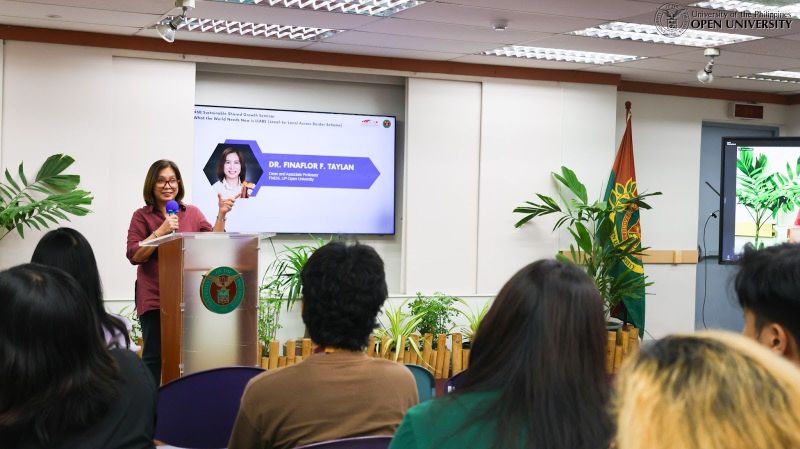
Dean Finaflor Taylan of FMDS delivered her closing remarks
The KKK46B Seminar continued the momentum of the KKK46 Seminar series by drawing from the insights and field experiences of KKK46A, which featured immersive walk-talk activities in Fujino. As part of the KKK46A, participants engaged in a morning hike from Fujino Station to the Permaculture Center of Japan, following a walking research methodology that encouraged reflective observation and dialogue. These experiences laid the groundwork for discussions in KKK46B.
Written by Marinela Hernandez | Edited by Primo Garcia, Anna Cañas-Llamas and Noreen Alazada | Photos by Anthea Peredo








